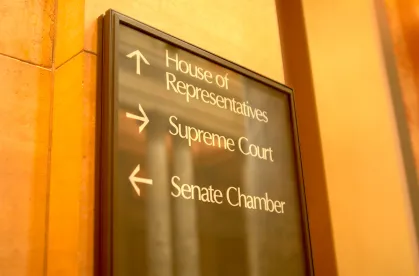This Week’s Dose
This week marked the start of a three-week congressional work period (four weeks for the Senate) with 12 voting days before the August recess and only 120 days remaining until the election. On Thursday, Senator Joe Manchin threw a major wrench into ongoing negotiations with Majority Leader Chuck Schumer (D-NY) on reconciliation, noting he could not support any tax increases or climate provisions, but remaining open to a health-only package including Medicare prescription drug negotiation and an extension of Affordable Care Act tax credits. Additionally, both chambers of Congress held hearings on the impact of the Supreme Court’s ruling in Dobbs v. Jackson Women’s Health Organization, the House voted on additional protections for abortion services, and the Administration continued to release policies aimed at protecting reproductive healthcare services. Physician stakeholders also further dove into the details of the proposed physician fee schedule rule, which has many new payment and delivery policies.
Congress
House and Senate Committees Hold Hearings on Reproductive Healthcare. This week there were four hearings addressing the impact of Dobbs:
-
The Senate Health, Education, Labor, and Pensions Committee held a hearing entitled “Reproductive Care in a Post-Roe America: Barriers, Challenges, and Threats to Women's Health,” which examined the Supreme Court’s decision on Dobbs and its impact on access to reproductive services, maternal mortality and healthcare in the United States.
-
The Senate Judiciary Committee held a hearing entitled “A Post-Roe America: The Legal Consequences of the Dobbs Decision,” which reviewed the legal implications of Dobbs.
-
The House Oversight Committee held a hearing entitled “The Impact of the Supreme Court’s Dobbs Decision on Abortion Rights,” which focused on states’ restrictions on reproductive healthcare services.
-
The House Judiciary Committee held a hearing entitled “What’s Next: The Threat to Individual Freedoms in a Post-Roe World,” which examined the broader impact of the decision on individual liberties and personal rights.
Each of the hearings focused on the impact of the Dobbs decision on women’s healthcare but did not outline specific legislation or policy proposals. The hearings followed a similar cadence, with Republicans focusing on the benefits of life-affirming care clinics, exemptions in current anti-abortion legislation for the life of the mother, the constitutionality of Dobbs, and state’s rights issues. Democrats focused heavily on provider liability, possible lack of access to non-abortion healthcare, disparities in maternal mortality, health equity issues, and how women who seek an abortion will now be unable to safely access it.
The House Energy and Commerce Committee also has a hearing scheduled for next Tuesday, July 19, entitled “Roe Reversal: The Impacts of Taking Away the Constitutional Right to an Abortion.”
House Votes on Reproductive Healthcare Bills. The House passed two abortion-related bills on Friday, July 15. The first, the Women’s Health Protection Act (H.R. 8296), would codify federal abortion protections for healthcare providers. It passed on an almost party-line vote of 219-210, with one Democrat joining Republicans in opposition (Rep. Cuellar (D-TX)). The second, the Ensuring Abortion Protections Act (H.R. 8297), would ensure that states could not pass laws limiting interstate travel for the procurement of an abortion. It passed on a mostly party-line vote of 223-205, with three Republicans joining all Democrats in support (Reps. Fitzpatrick (R-PA), Kinzinger (R-IL) and Upton (R-MI)). Neither bill is expected to obtain enough support in the Senate to move forward. On July 14, Senator Catherine Cortez Masto (D-NV) asked for unanimous consent to bring a similar bill protecting travel across state lines, the Freedom to Travel for Health Care Act, to the floor but was blocked by Senate Republicans led by Senator James Lankford (R-OK).
Administration
CMS Releases CY 2023 Medicare Physician Fee Schedule Proposed Rule. On July 7, the Centers for Medicare & Medicaid Services (CMS) released the calendar year (CY) 2023 Revisions to Payment Policies under the Physician Fee Schedule and Other Changes to Part B Payment Policies Proposed Rule (CMS-1770-P), which includes proposals related to Medicare physician payment and the Quality Payment Program, among others. CMS has proposed a Conversion Factor (CF) of $33.0775, which represents an approximately 4.42% reduction from the final CY 2022 CF. The proposed CF for anesthesia is $20.7191, which represents an approximately 3.91% reduction from last year. These CF amounts reflect a statutorily required update of 0%, the expiration of a 3% increase in payments for CY 2022 as required by the Protecting Medicare and American Farmers from Sequester Cuts Act, and a statutorily required budget neutrality adjustment. Beyond the payment updates, the rule includes numerous other policy proposals addressing accountable care organizations, access to behavioral health services and some dental services, and changes to the Merit-based Incentive Payment System. CMS released several resources alongside the proposed rule, including a press release, fact sheet, a Medicare Shared Savings Program fact sheet and a blog post on the proposed behavioral health policy changes. Comments on the proposed rule are due by September 6.
HHS Announces New Guidance on Reproductive Healthcare. On July 8, President Biden signed an executive order for abortion access. In this order, the US Department of Health and Human Services (HHS) pledged to take steps to ensure that all patients have access to the full rights and protections for emergency medical care afforded under the law. Currently, medical providers and hospitals are required by the Emergency Medical Treatment and Labor Act to provide stabilizing treatment for patients with emergency medical conditions. On July 11, the Biden Administration reiterated, through new guidance from HHS, that medical providers must offer abortion services if the life of a mother is at risk and that procedures conducted under such circumstances would be protected regardless of state law. The state of Texas has already filed a lawsuit challenging the Biden Administration on this new guidance on the grounds that it violates the rights of physicians who oppose providing abortions and violates a state’s right to invoke its own policies.
Additionally, the Office of Civil Rights released guidance for retail pharmacies on access to reproductive healthcare services. The guidance, directed toward the nation’s 60,000 retail pharmacies, directed that pharmacists must provide medications related to reproductive healthcare as directed and prescribed by providers. This includes abortion pills, birth control and other reproductive care treatments. The agency cited reports outlining instances in which women were denied certain medications because the drugs may be linked to abortion or the drugs have ingredients like those used for medication abortion, for example Methotrexate, which is sometimes used to treat certain types of cancer, psoriasis and rheumatoid arthritis, but can also be used off-label to end ectopic pregnancies.
HHS Holds Briefing on New 988 Mental Health Hotline. On July 13, the Children’s Health Group and Child and Adolescent Mental Health Coalition held a special joint meeting featuring speakers from HHS, to discuss the upcoming launch of 988, the new three-digit hotline that will soon replace the current 10-digit National Suicide Prevention Lifeline hotline. The new three-digit number will be a Mental Health Crisis Lifeline expanding the current hotline services to help callers experiencing a range of mental health emergencies. It will be accessible for both phone calls and text communications beginning on July 16 from any mobile phone, landline or internet device.
HHS speakers shared the hotline features and information about the counselors available, and answered questions from the briefing attendees, including inquiries about coordination with the national maternal mental health hotline, resources to serve the LGBTQI youth population, access to local resources and services, and multiple language access.
Quick Hits
-
The Senate Appropriations Committee has released a compilation of all FY 2023 Community Project Funding requests made by individual senators. The committee has yet to release bill text, so it is not clear which funding requests will be ultimately included.
-
The House Energy and Commerce Committee held a markup of five bills, including a bipartisan healthcare bill to ensure that Medicare covers medically necessary treatment for lymphedema patients.
-
CMS approved requests to extend reinsurance programs established under the Affordable Care Act Section 1332, for three states—Alaska, Oregon and Minnesota—highlighting how the waivers have helped lower premium costs.
-
On July 15, the proposed Hospital Outpatient Prospective Payment System rule cleared the Office of Management and Budget (OMB). The rule could propose changes to the 340B drug pricing program as well as other important policies for hospital outpatient departments.
-
The COVID-19 public health emergency (PHE) is set to expire on July 15. While the Administration has yet to issue a formal extension, it is expected that the PHE will be renewed for another 90-days.
Next Week’s Diagnosis
Both chambers will return next week with a full agenda including continued negotiations around reconciliation, substantial appropriations work and another hearing on the impacts of Dobbs.






 />i
/>i

